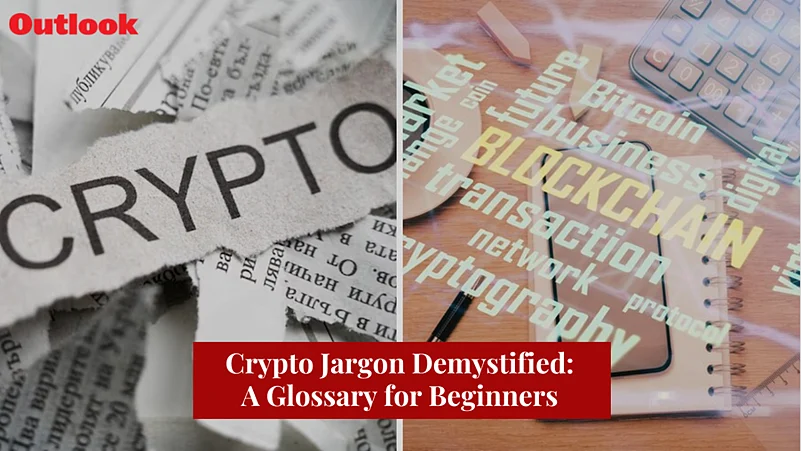Entering the world of cryptocurrency can be like learning a foreign language. From terms such as "blockchain" and "DeFi" to the more technical jargon of "hash rate" or "gas fees," it is not hard to get confused. But here's the good news: you do not have to be a technologist in order to get the basics.
This article is designed for beginners who are curious about cryptocurrency but feel confused by the unfamiliar terms. By the end of this read, you바카라ôll have a clearer understanding of common crypto terminology and feel more confident exploring the space.
What Is Cryptocurrency?
Cryptocurrency is virtual money. Unlike regular money printed by a government (such as Indian Rupees or US Dollars), cryptocurrencies use decentralized networks through a technology called blockchain. The first and most famous cryptocurrency is Bitcoin, but now there are thousands more like Ethereum, Solana, and Cardano.
Blockchain
Think of a blockchain as a digital book. Every time someone sends or receives cryptocurrency, a record of that transaction is added to this book. But unlike a normal book, this ledger is not stored in one place. Instead, it's shared across thousands of computers worldwide, making it very secure and difficult to tamper with.
Wallet
In the crypto world, a wallet doesn바카라ôt hold physical money. Instead, it stores your digital keys that let you access and manage your cryptocurrencies. There are two main types of wallets:
Hot Wallets: These are connected to the internet (like apps or websites). They바카라ôre convenient but may be more vulnerable to online attacks.
Cold Wallets: These are offline wallets (like USB drives). They are considered safer for long-term storage.
Private Key & Public Key
These are valuable components of your wallet. A public key is similar to your email address 바카라Ē you can give it to others so they can send you crypto. A private key is similar to your password 바카라Ē you should never give it away. If someone has your private key, they can steal your crypto.
Exchange
A crypto exchange is an application or site where you can sell, buy, or exchange cryptocurrencies. Binance, Coinbase, and WazirX (India) are some famous exchanges. These platforms facilitate converting your local currency into digital coins and vice versa.
Gas Fees
If you transact on Ethereum or some other blockchains, you'll frequently hear the term "gas fees." This is the fee that you pay to execute a transaction. It's comparable to a delivery fee for delivering money or carrying out a smart contract. Fees change based on how loaded the network happens to be.
Smart Contracts
These are computerized contracts that execute automatically when specific conditions are fulfilled. Picture an online transaction where the seller is paid only after the buyer delivers the goods. Smart contracts can do that without the involvement of a third party such as a lawyer or bank.
NFT (Non-Fungible Token)
NFTs are special digital assets that you can possess. These may include pictures, videos, or even parcels of virtual property. Contrary to cryptocurrencies, there are no two NFTs alike and cannot be swapped one for one.
DeFi (Decentralized Finance)
DeFi is the term that is used to refer to financial services (such as lending, borrowing, and trading) that occur without central banks. Such services operate on blockchain via smart contracts, providing more direct and transparent alternatives to traditional banking.
HODL
This slang was born out of a typo of the word "hold." It refers to holding your cryptocurrency for the long term rather than selling when there are price declines. HODLing is now a prevailing attitude among crypto fans who expect prices to increase with time.
Mining
Mining is the process used to create some cryptocurrencies, such as Bitcoin. Miners employ powerful computers to work on complicated problems that help legitimize trades on the blockchain. As a reward, they receive new coins. It's digital gold mining 바카라Ē minus the shovels.
Altcoins
Any other cryptocurrency than Bitcoin is typically referred to as an altcoin. These include coins such as Ethereum, Ripple, and Litecoin. All have their own function and underlying technology.
Token vs Coin
These terms are used interchangeably by people, but there is a distinction. A coin (such as Bitcoin or Ethereum) has its own blockchain. A token (such as Uniswap's UNI or Chainlink's LINK) utilizes a pre-existing blockchain, usually Ethereum.
Staking
Staking is another method of getting rewards for holding some cryptocurrencies. You "lock" your coins in a network to contribute to operations, and you get rewarded with more coins. It's kind of like getting interest on a bank savings account.
DAO (Decentralized Autonomous Organization)
DAO is an organization run by code rather than individuals. Decisions are voted on by members with tokens. Everything is open and operates without a centralized authority.
Conclusion: Learning the Crypto Language
As with any new discipline, cryptocurrency has a specialized lexicon. But once you deconstruct the terminology, it isn't so difficult after all. You don't have to learn it all at once. Break it down, begin with the fundamentals, and step your way through.
Whether you want to invest, learn about blockchain technology, or just want to know what everyone else is discussing, learning this crypto lingo is the way to go. The better you know the terms, the more comfortable you'll be venturing into this rapidly expanding digital landscape.
Make crypto jargon an invitation, not a barrier. The terminology can be unfamiliar, but the concepts that drive them are reshaping the future of finance, communication, and technology.














